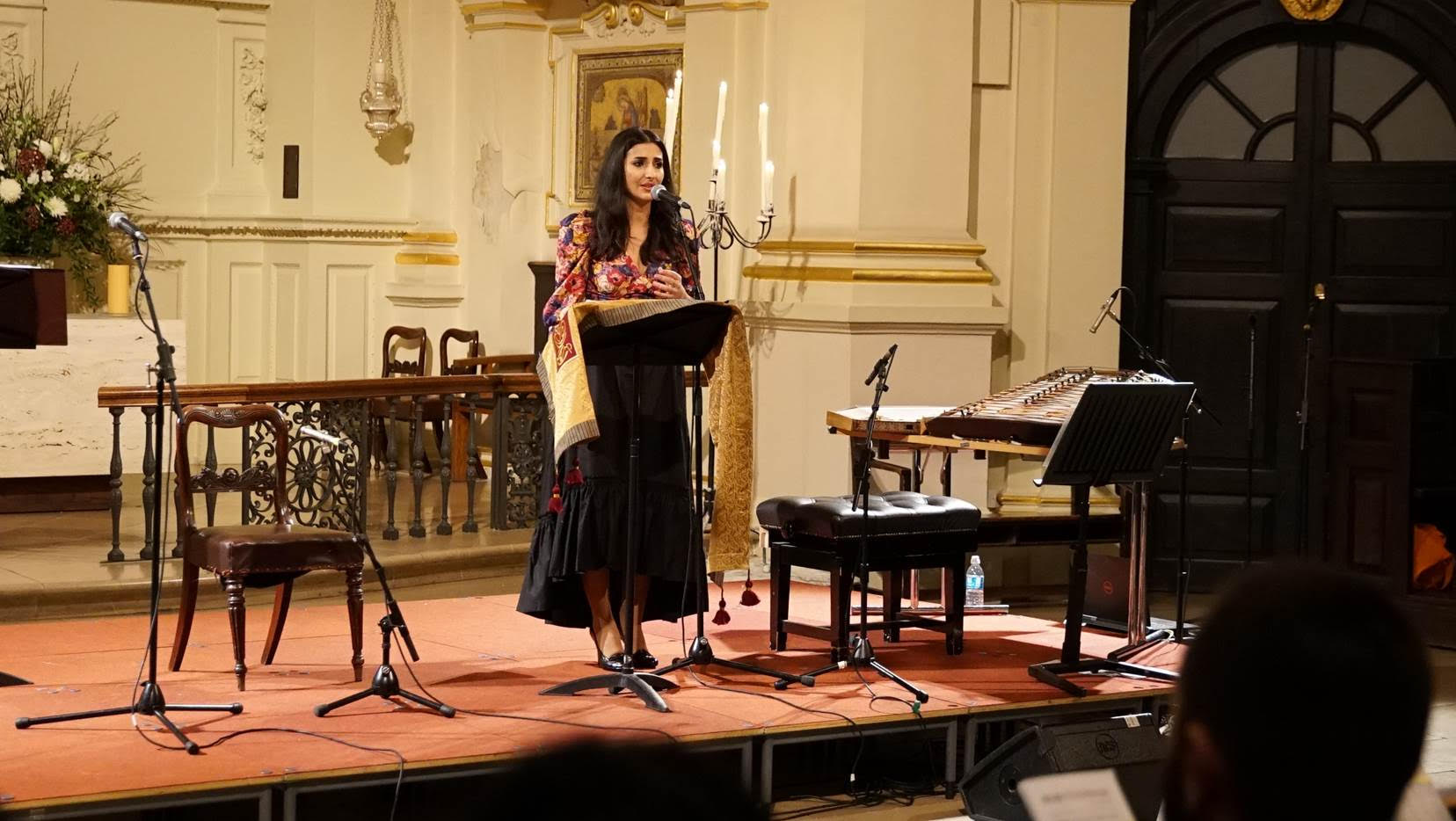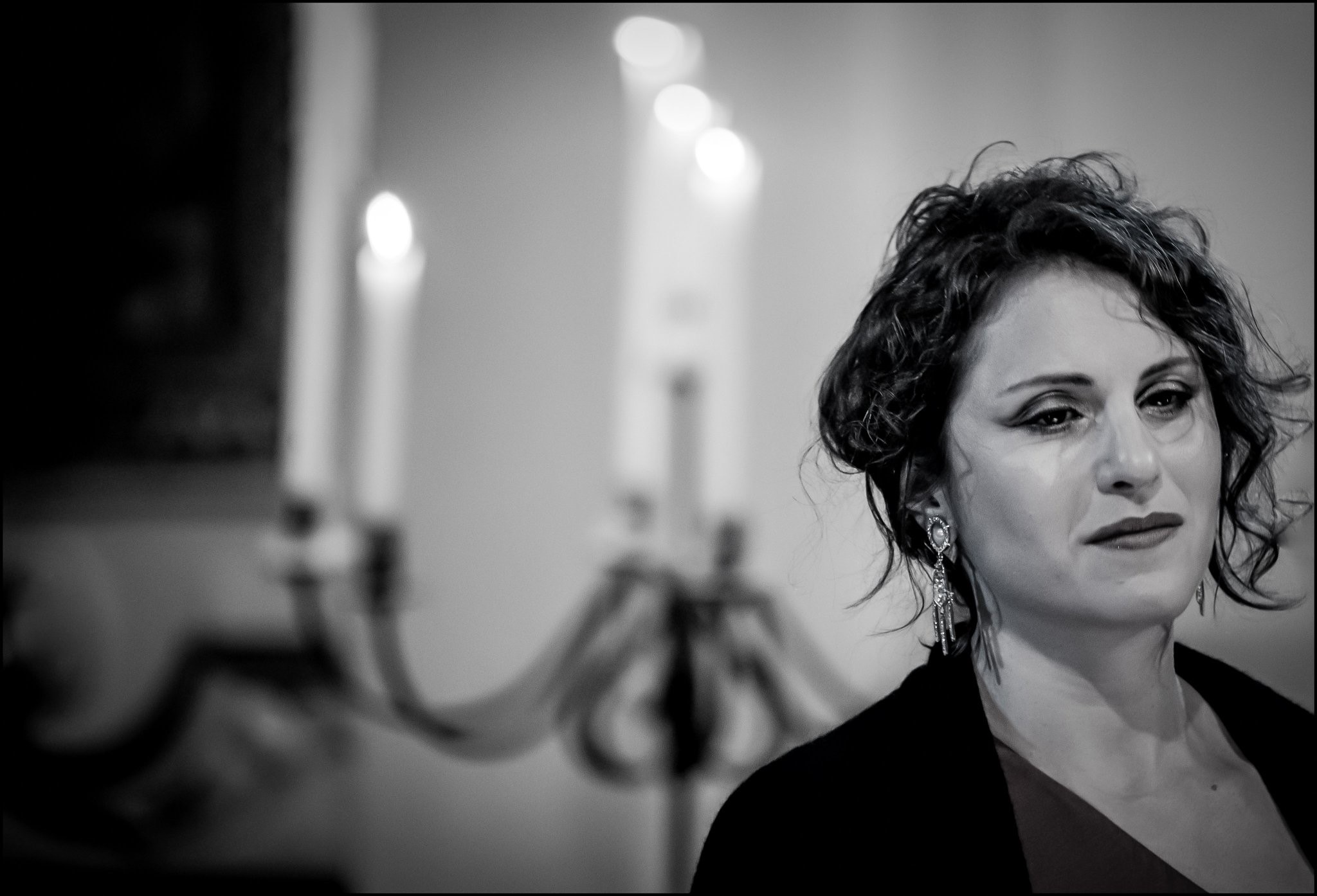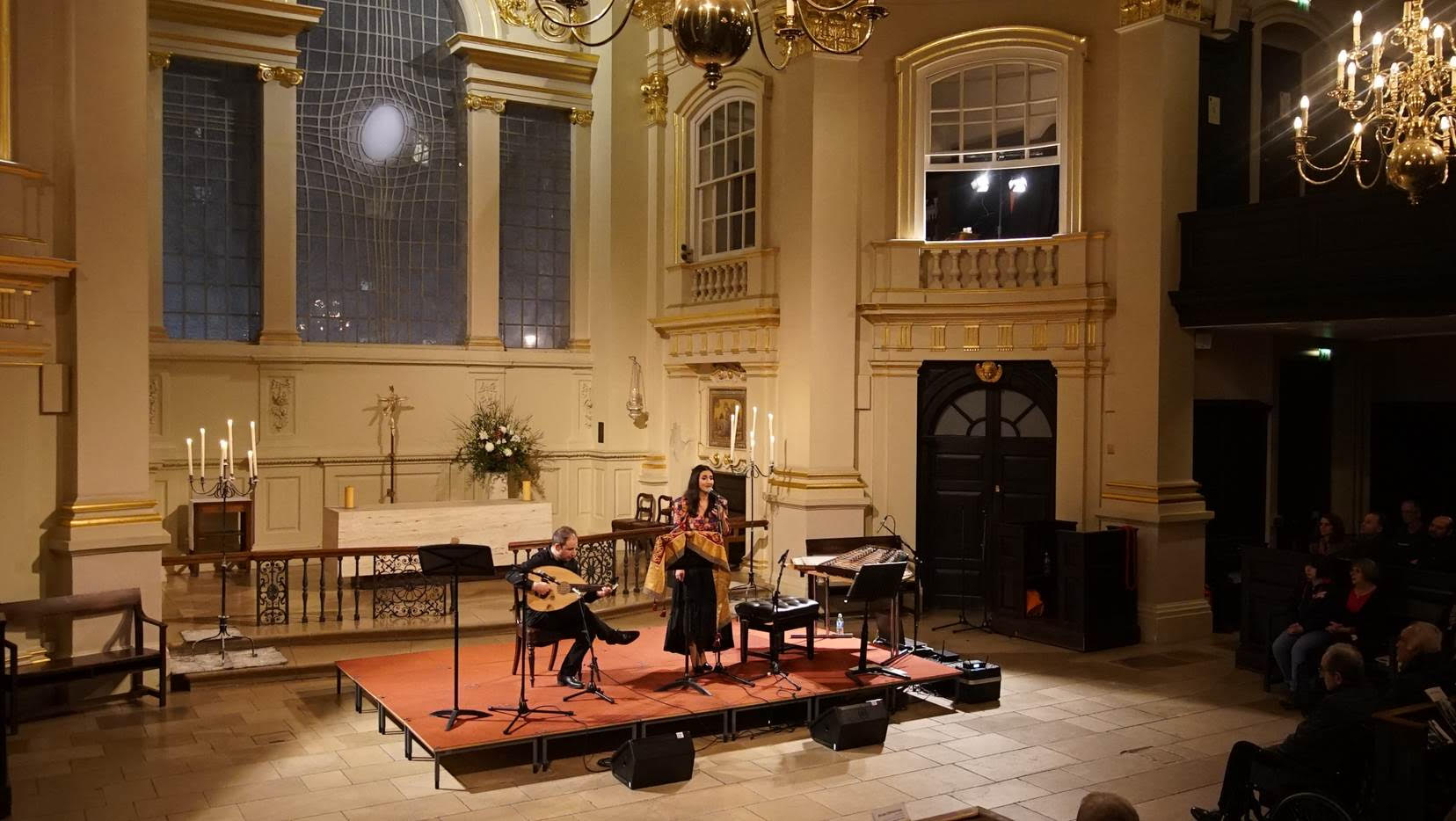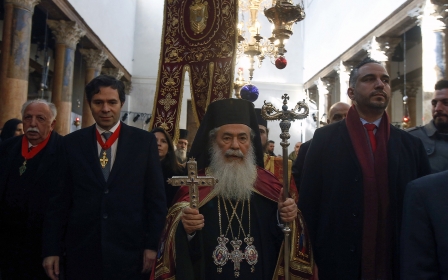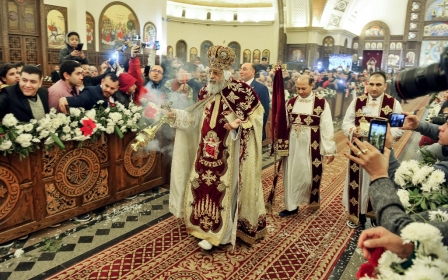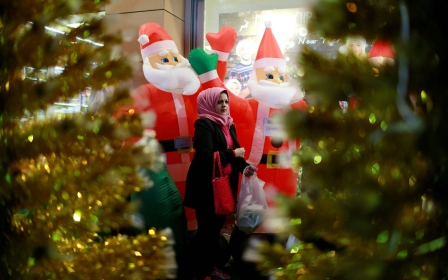'Arab Christmas': A mesmerising mix of sound and setting
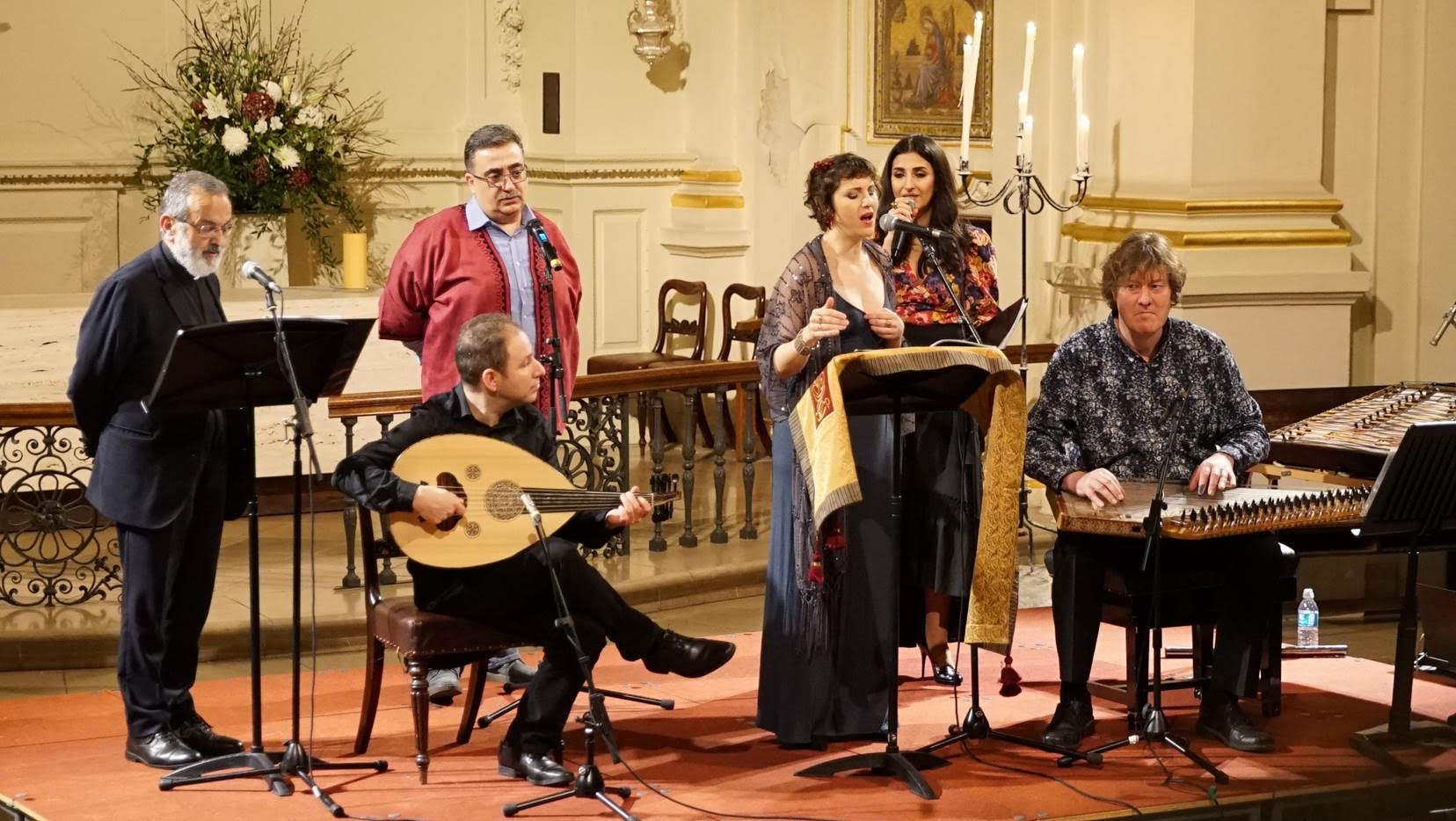
It’s a challenge to summon up the spirit of Christmas when most of the locals have already taken down their trees. But a celebration of the "Arab Christmas" at one of London’s most loved churches last night offered a place of peace and reflection after the noise, glitter and clutter.
It is the third year the arts organisation Arts Canteen has celebrated the Arab Christmas at St Martin-in-the-Fields, on a corner of Trafalgar Square, a church that has built a reputation for outreach to different communities including the homeless, as well as for music concerts. The date, 7 January, is the day eastern Orthodox Christians - including most Middle Eastern Christians - mark the birth of Jesus Christ, according to the Roman Julian calendar.
In a poignant moment in the candlelit concert, Archemandrite Shafiq Abouzayd, the senior Melkite Catholic Priest in Britain, a British-Lebanese who studied Aramaic-Syriac and Arabic at the monastery of the Lebanese Maronite Missionaries in Jounieh, said a prayer for “our suffering Middle East”.
He led a prayer for people in Syria and Iraq, Libya and Yemen, for reconciliation between Jews, Muslims and Christians, and for “our children that are suffering most from this terrible situation”. There was a bittersweet quality hearing some of the earliest music from the region, from some of its greatest contemporary musicians and singers, in a season of goodwill.
New MEE newsletter: Jerusalem Dispatch
Sign up to get the latest insights and analysis on Israel-Palestine, alongside Turkey Unpacked and other MEE newsletters
The Lebanese singer and oud player Najib Coutya was taught chants by his late father Mitri Coutya, a famous choirmaster and singer of Byzantine and Arabic church music. He now leads a choir at an Antiochian Greek Orthodox church in St Pancras, north London. Wearing a simple, red, traditional Lebanese tunic, he sang chants that draw on the Arabic maqam melodic system, in shivering, tremulous tones. They ran from a version of the Bible’s Epistle to St Paul sung as a tribute to his father, to a boisterous, breezy, energetic hymn composed to celebrate the baptism of a child.
The Palestinian oud player Nizar Rohana, born near Haifa but now living in the Netherlands, has performed from Egypt to Japan, and counts inspirations from Bach and Beethoven to the 20th Century Egyptian musician and composer, Muhammad Al-Qasabji.
Rohana seemed to pause between sets of delicately cascading notes, like sunlight reflecting off ripples, in a style both innovative and rooted in the traditional, one sensed the influence of soulful Sufi music, or perhaps Simon and Garfunkel.
Each performance in the line up of seven singers and musicians, hosted by Palestinian singer and broadcaster Reem Kelani, stood out as a musical gem from artists with wide-ranging careers. Rohana accompanied Mirna Kassis, the Syrian mezzo-soprano, in an Arabic Ave Maria, or “Hail Mary”, the salutation of the angel Gabriel to the Virgin Mary, a staple of Christian church music.
Kassis, whose work has ranged from classical solo roles to touring with the Blur singer and songwriter Damon Albarn, sang in the original Byzantine she has performed in from a young age. Other songs were in Syriac, a language dating to the 4th century BC and used today by the Syriac Orthodox Church, whose bishop claims succession from St Peter.
The Arab Christmas moved to St Martin’s from London’s East End, where it was launched by Arts Canteen, the organisation bringing artists from the Arab world together for audiences in the UK and beyond. Both the leading organiser and the host of the Arab Christmas event come from Muslim families.
“These are very difficult times, the news through the TV channels is all the time about wars and conflicts and occupation, and it’s a nice quiet moment to celebrate the Arab Christmas in a way that is wider and inclusive,” says the Arts Canteen founder and director Aser El Saqqa, born to a Muslim family in Gaza but with Christian neighbours.
“Syrian, Lebanese, Iraqis, Palestinians, we have a long history of Christianity. The Arab communities in London are growing in response to conflicts of the region. It’s a reminder that the Arab community in London is part of the fabric of the city. We can contribute to and be part of this celebration."
Kassis, appearing for the first time in the Arab Christmas line-up, launched the concert in a balcony duet with Merit Ariane Stephanos, the German-Egyptian singer and composer whose influences run from the Egyptian Coptic church to her study of Arabic chants in Lebanon.
Stephanos’ remarkable voice, with long, lingering notes, seemed as creamy as Swiss chocolate, in an outstanding performance that also saw her sing with Jon Banks, the British accordionist and musicologist who specialises in Middle Eastern instruments.
There were a couple of uncertain moments. When Kassis sang an Arabic version of Silent Night, her voice sounded boxed in, as if its full power was straining to break out. An under-rehearsed ensemble singing of the Greek prayer the Kyrie Eleison (Lord have Mercy) was an unsatisfying finale.
But it was clear why both this year and last, this post-Christmas Christmas - a mesmerising mix of sound and setting - has sold out.
St Martin-in-the-Fields, with its pillared portico, is an 18th century church with roots in a religious site dating back to London’s Roman founders. The melodies here took the packed audience to a land of olive groves and sandy soil, with music that has moved between cultures and religions, from roots reaching back to ancient times.
Middle East Eye delivers independent and unrivalled coverage and analysis of the Middle East, North Africa and beyond. To learn more about republishing this content and the associated fees, please fill out this form. More about MEE can be found here.


